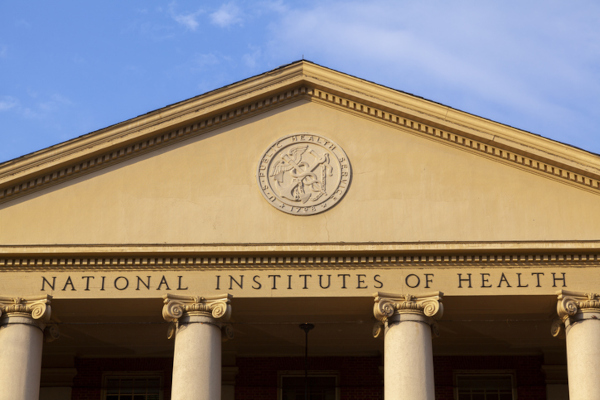
By Marcelo Jauregui-Volpe
Jason Flatt, an associate professor at the University of Nevada, Las Vegas, has dedicated his career to studying how to improve health outcomes for LGBTQ+ people with Alzheimer’s disease.
“This has been my life’s work,” said Flatt in an interview with Science.
However, he now anticipates pivoting away from his branch of Alzheimer’s research after losing millions in funding for research and training grants from the National Institutes of Health (NIH). Due to the lost funds, Flatt has had to lay off two full-time staff and rush to find ways to pay the five graduate students working with him.
Flatt’s area of research isn’t the only one that the NIH has targeted for cuts. According to Science, since President Trump took office, the Department of Health and Human Services has “ordered NIH to cancel hundreds of grants that allegedly violated Trump executive orders barring funding for topics that touched on diversity, equity, and inclusion and LGBTQ health. The cuts included HIV trials in South Africa, training grants, health equity and environmental studies, as well as work on vaccine hesitancy and COVID-19.”
In fact, a recent brief from the Association of American Medical Colleges (AAMC) found that the NIH has canceled $1.9 billion in funding across hundreds of grants over the past few months.
“This year’s terminations of biomedical research grants funded by the National Institutes of Health are unprecedented in the history of the agency,” stated AAMC in the brief.
AAMC drew from a public database that has tracked grant cancellations at the NIH and the National Science Foundation since February to determine the kinds of grants that were canceled and the amount of NIH funding lost in each state.
As of May 5, AAMC tallied 777 grant terminations. Most of the terminated grants – roughly 90% – funded research and development, in addition to research training and career development.
One of the targeted grants studied childhood vaccination rates and vaccination rate disparities between urban and rural communities. Sophia Newcomer, an associate professor of public health at the University of Montana working on the study, told KFF Health News that NIH notified her that her project “no longer effectuates agency priorities.” Newcomer expressed concern that these grant terminations will limit the research that benefits rural communities: “States like Montana don’t get a lot of funding for health research, and health researchers in rural areas of the country are working on solutions to improve rural health care.”
The AAMC brief found that the NIH’s Institutional Development Award program, which strengthens research efforts in states that have historically received less NIH funding, “lost a combined $75.4 million across 59 terminated grants.”
Ninety-one of the canceled grants – amounting to $643 million in funding – supported 113 active clinical trials that investigated topics such as HIV, cancer, mental health, and COVID-19.
The publication of the AAMC brief came days after the NIH updated its policies to prohibit American researchers from distributing their funds to foreign collaborators. Scientists are worried that this policy change will slow down the discovery of cures for rare diseases.
The AAMC brief highlights how cuts to NIH funding threaten Americans’ health and the biomedical research that sets our nation apart from its competitors.
As AAU affirmed in a recent statement about President Trump’s FY26 budget request, massive cuts at NIH “would move us, virtually overnight, from global leadership in biomedical advancement to last place among our competitor nations and would jeopardize our ability to find new cures for debilitating diseases, including cancer, diabetes, Alzheimer’s, and heart disease.”
Marcelo Jauregui-Volpe is editorial and communications assistant at AAU.